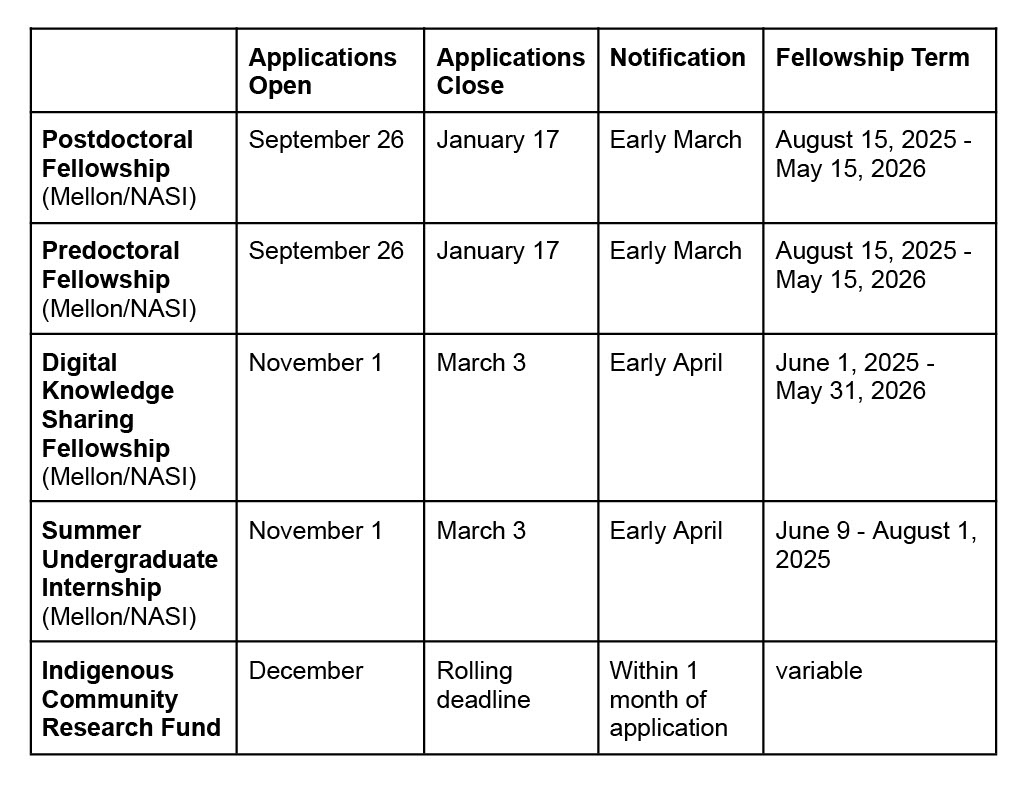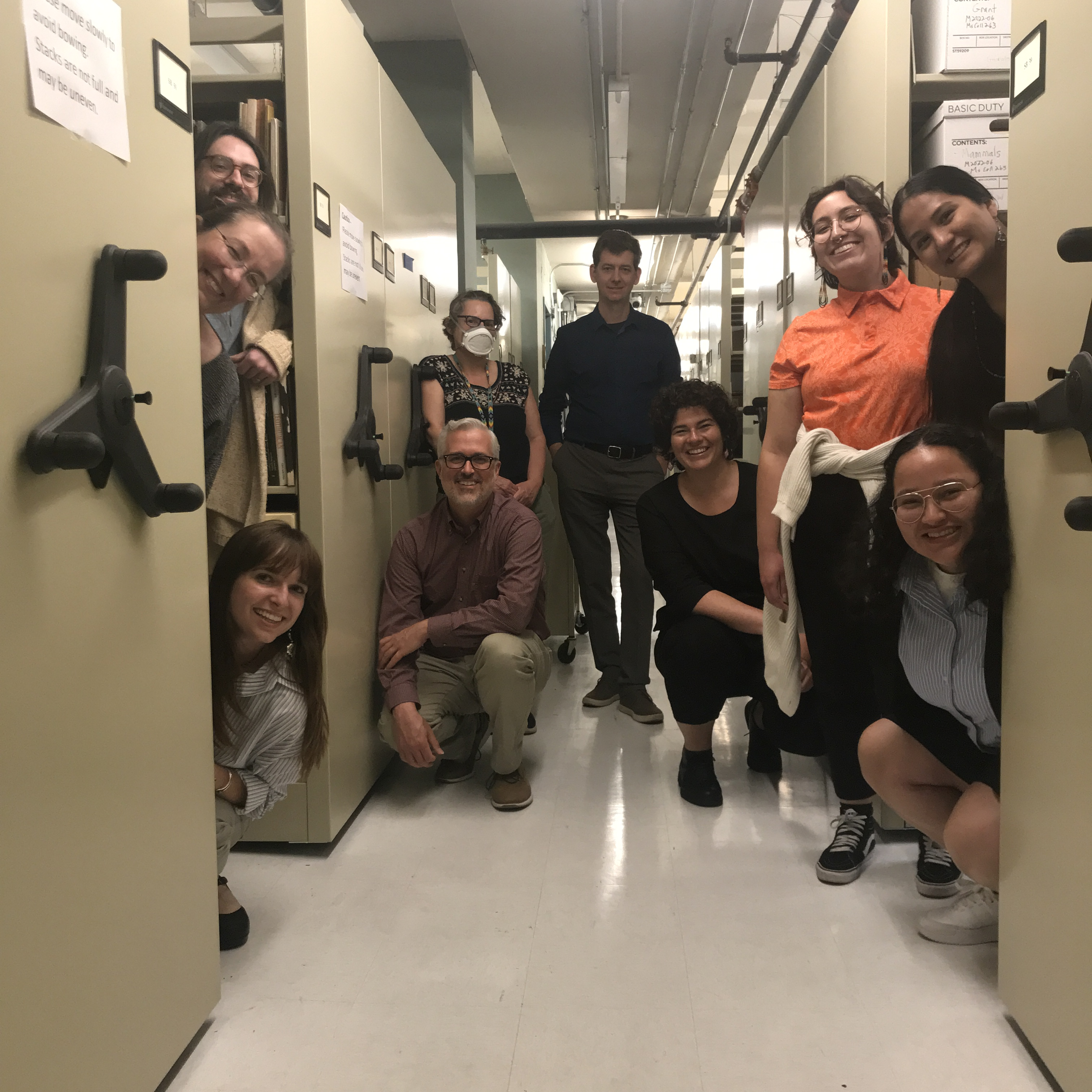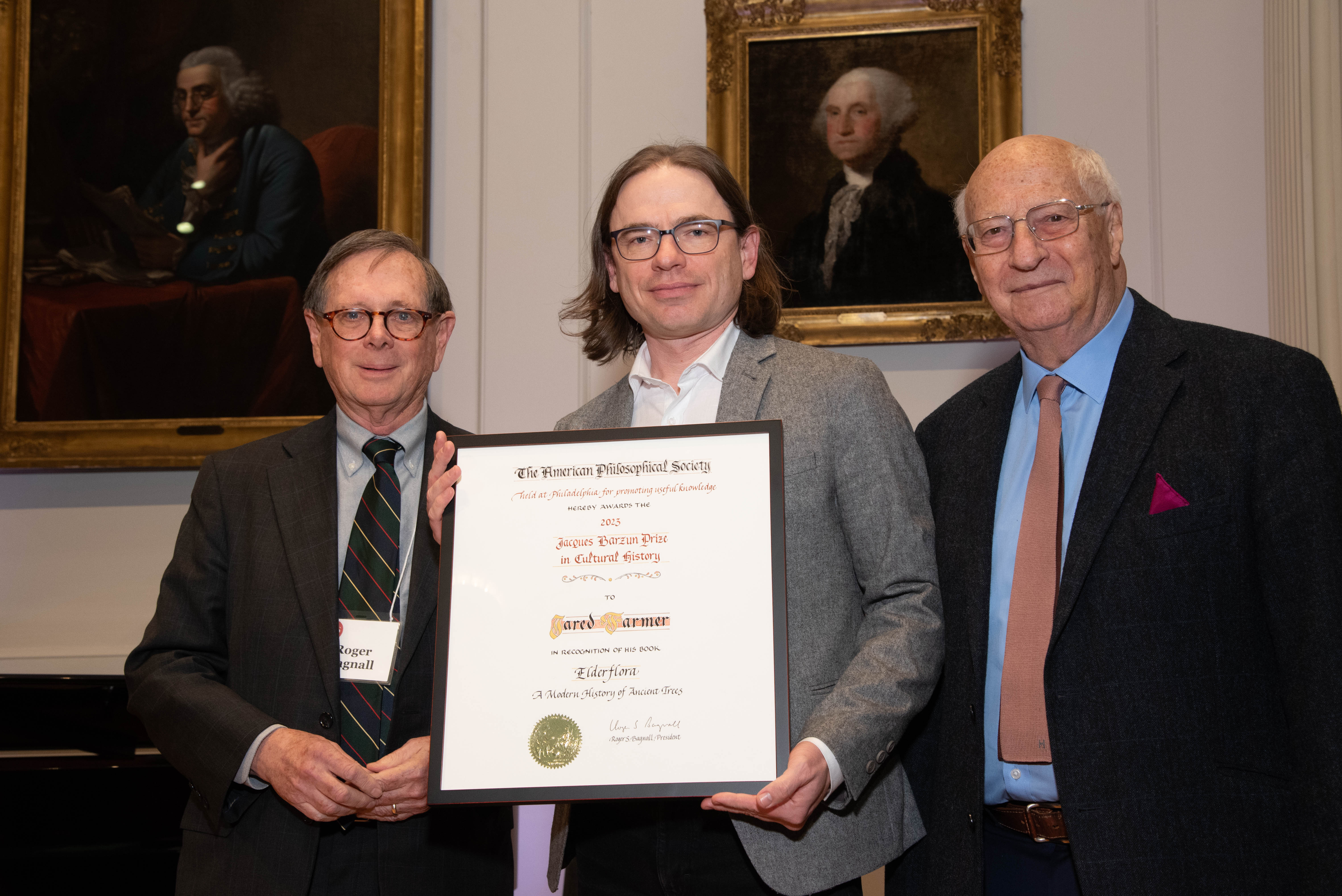December 2023
Robert M. Solow (APS 1980) died on December 21, 2023, in Lexington, MA, at the age of 99. American economist and Nobel laureate whose work on the theory of economic growth culminated in the exogenous growth model named after him.
John G. A. Pocock (APS 1994) died on December 12, 2023, at the age of 99. Pocock wove philosophy, political science, and history into a program in political and moral thought that Johns Hopkins University is known for today.
Edgar S. Woolard, Jr. (APS 1996) died on December 4, 2023, in Palm Beach Gardens, FL, at the age of 89. He was the former CEO and chair of DuPont who led the company through tremendous restructuring in the early 1990s.
Sandra Day O'Connor (APS 1992) died on December 1, 2023, in Phoenix, AZ, at the age of 93. She was the first woman to serve as a Justice on the U.S. Supreme Court.
November 2023
John L. Heilbron (APS 1990) died on November 5, 2023, in Padua, Italy, at the age of 89. He was a historian of science whose books, including a biography of Galileo, helped to debunk several myths.
Emmanuel Le Roy Ladurie (APS 1979) died on November 22, 2023, in Paris, France, at the age of 94. He led a movement that rejected historiography’s traditional emphasis on great events and leaders in favor of mining the “mental universe” of peasants, merchants and clergymen.
October 2023
Hans E. Mayer (APS 1978) died on October 21, 2023, in Klausdorf, Germany, at the age of 91. Hans Mayer was an international expert on the history of the Crusades.
Natalie Zemon Davis (APS 2011) died on October 21, 2023, in Toronto, ON, at the age of 94. She wrote of peasants, unsung women, border crossers and, most popularly, Martin Guerre, a 16th-century village impostor recalled in a 1980s movie.
Louise Glück (APS 2014) died on October 13, 2023, in Cambridge, MA, at the age of 80. Acclaimed as one of America’s greatest living writers, she blended deeply personal material with themes of mythology and nature. She won the Nobel Prize in Literature in 2020.
September 2023
Gloria Ferrari Pinney (APS 2003) died on September 18, 2023, likely in Lawrenceville, NJ, at the age of 82. She was an internationally renowned classical archaeologist and art historian.
Evelyn Fox Keller (APS 2006) died on September 22, 2023, in Cambridge, MA, at the age of 87. A copy of the MIT obituary is pasted below. She was a distinguished and groundbreaking philosopher and historian of science.
Victor R. Fuchs (APS 1990) died on September 16, 2023, in Palo Alto, CA, at the age of 99. He demonstrated that the real problem facing the country was not health care coverage but health care costs; America, he said, was spending more and more without achieving better health outcomes.
August 2023
John Warnock (APS 2009) died on August 19, 2023, at the age of 82. Dr. Warnock played a seminal role in the history of computing as co-founder and chief executive of Adobe Inc., helping create the Portable Document Format (PDF) and software that turned computers into digital printing presses, radically reshaping office life and publishing.
Richard M. Goody (APS 1997) died on August 3, 2023, in Cockeysville, MD, at the age of 102. Dr. Goody spearheaded a program referred to as "Global Habitability" to examine the factors affecting the Earth's ability to sustain life, principally through biogeochemical cycles and climate. He was described as "the grandfather of the International Geosphere-Biosphere Program."
July 2023
Professor Laura Kiessling (APS 2017) joins the Advisory Board of RSC Chemical Biology
Ruth J. Simmons (APS 1997) named 2023 Jefferson Lecturer in the Humanities
Former BBC director general Mark Thompson (APS 2017) knighted
Penn State chemist Stephen Benkovic (APS 2002) named Atherton Professor
Éva Tardos (APS 2020) has been awarded the Donald E. Knuth Prize
Rudy Marcus (APS 1990) celebrated his 100th birthday with a day of festivities at Caltech
Stephen M. Stigler (APS 2006) has published Casanova’s Lottery: The History of a Revolutionary Game of Chance
Patrick Spero (APS 2019) on panel to discuss The Founding Fathers’ Legacy Series: Unpacking the Complex Truth
APS member Lewis M. Branscomb (APS 1970) died on May 31, 2023, in Redwood City, CA, at the age of 96. He was an American physicist, government policy advisor, and corporate research manager. He was best known for being head of the National Bureau of Standards and, later, chief scientist of IBM; and as a prolific writer on science policy issues.
APS member André Watts (APS 2020) died on July 12, 2023, in Bloomington, IN, at the age of 77. With a performance career that spanned over 60 years, he was internationally celebrated as a musical and artistic legend.
June 2023
Elizabeth Anderson (APS 2021) and Alondra Nelson (APS 2020) have won the 2023 Sage-CASBS Award
Yo-Yo Ma (APS 1999) and Fabiola Gianotti (APS 2019) were featured on The Intersection by Nautilus
Philip Kitcher (APS 2018) has published What's the Use of Philosophy? which was featured on the Critical Theory Podcast
Glenn C. Loury (APS 2011) was featured as part of a roundtable on Afro Perspectives
The Brookings Institution announced that Cecilia Rouse (APS 2021) has been named its next president
Professor Viviana Zelizer (APS 2007) to receive highest award and a second major honor from the American Sociological Association
Dr. Ruth Simmons (APS 1997), esteemed academic leader and recognized champion for inclusion in education, has been elected to the John D. and Catherine T. MacArthur Foundation Board of Directors. Simmons will join the Board for its June meeting.
APS member Donald D. Brown (APS 1981) died on May 31, 2023, in Baltimore, MD, at the age of 91. His work revealed the fundamental nature of genes.
APS member Cormac McCarthy (APS 2012) died on June 13, 2023, in Santa Fe, NM, at the age of 89. He was an American writer who authored twelve novels, two plays, five screenplays, and three short stories, spanning the Western and postapocalyptic genres.
APS member Henry Petroski (APS 2006) died on June 14, 2023, in Durham, NC, at the age of 81. He wrote extensively about the design of buildings and bridges and how they failed. He also examined the history of commonplace objects like the pencil.
APS member Owen Gingerich (APS 1975) died on May 28, 2023, in Belmont, MA, at the age of 93. He wrote and lectured widely, often on the theme that religion and science were not incompatible. He also chased down 600 copies of Copernicus’s landmark book.
May 2023
APS member Harald zur Hausen (APS 1998) died on May 28, 2023, in Heidelberg, Germany, at the age of 87. He carried out research on cervical cancer and discovered the role of papilloma viruses in cervical cancer, for which he received the Nobel Prize in Physiology or Medicine 2008.
APS member James B. Hartle (APS 2016) died on May 17, 2023, in Switzerland, at the age of 83. Hartle is known for his work in general relativity, astrophysics, and interpretation of quantum mechanics.
APS member Ludwig Koenen (APS 1991) died on May 9, 2023, in Ann Arbor, MI, at the age of 92. He was a scholar of exceptional importance in papyrology and Greek literature and religion, a tireless and generous editor, advisor, and teacher, and a model of service to his department and his discipline.
APS member Robert E. Lucas, Jr. (1997) died on May 15, 2023, in Chicago, IL, at the age of 85. A copy of the New York Times obituary is attached. He was a Nobel laureate in economics who undergirded conservative arguments that government intervention in fiscal policy is often self-defeating.
April 2023
APS member James W. Valentine (APS 2009) died on April 7, 2023, in Berkeley, CA, at the age of 96. He was an American evolutionary biologist, Professor Emeritus in the Department of Integrative Biology at the University of California, Berkeley, and curator at the University of California Museum of Paleontology.
March 2023
Robert J. Sampson (APS 2011) will be giving the 3rd Annual Ray Paternoster Memorial Lecture
Joanna Aizenberg (APS 2016) will deliver the 2023 Wallace H. Coulter Lecture at Pittcon.
Patrick Spero (APS 2019) to Helm the George Washington Presidential Library at Mount Vernon
Postal Service Celebrates Author Toni Morrison (APS 1994) on New Forever Stamp
Andrew Delbanco (APS 2013) comments on "Are the Humanities in Crisis?"
Matthew Desmond (APS 2022) has written the article "Why Poverty Persists in America" in anticipation of his new book "Poverty, by America"
Roy (APS 1993) And Diana Vagelos Give Columbia University $175 Million For Biomedical Research And Education
APS member Paul A. David (APS 2003) died on January 23, 2023, in Palo Alto, CA, at the age of 87. A copy of the Stanford obituary is pasted below. He was an economic historian at Stanford best known for his research on technological change and how it affects social and economic behavior.
APS member Francisco José Ayala (APS 1984) died on March 3, 2023, in Irvine, CA, at the age of 88. He was a Spanish-American evolutionary biologist, philosopher, and former Catholic priest who was a longtime faculty member at the University of California, Irvine and University of California, Davis, though his career ended in controversy.
APS member Fedwa Malti-Douglas (APS 2004) died on February 17, 2023, in Rhinebeck, NY, at the age of 77. She mapped the discourse of gender and letters in the Arab Middle East and applied her insights to American culture, for which she was awarded the 2014 National Humanities Medal.
APS member Gordon E. Moore (APS 2005) died on March 24, 2023, in Hawaii, at the age of 94. He was an American businessman, engineer, and the co-founder and emeritus chairman of Intel Corporation. He proposed Moore's law, the observation that the number of transistors in an integrated circuit doubles about every two years.
February 2023
Paul R. Ehrlich (APS 1990) has published Life: A Journey through Science and Politics
APS member Paul Berg (APS 1983) died on February 15, 2023, in Stanford, CA, at the age of 96. He was a Nobel Prize-winning biochemist who ushered in the era of genetic engineering in 1971 by successfully combining DNA from two different organisms.
APS member Kent Greenawalt (APS 1992) died on January 27, 2023, in New York City, NY, at the age of 86. His primary interests involved constitutional law, especially First Amendment jurisprudence, and legal philosophy.
APS member Helene L. Kaplan (APS 1990) died on January 26, 2023, in New York City, NY, at the age of 89. She was the first woman to chair the board of Carnegie Corporation of New York.
January 2023
National Academy of Sciences has announced it will present its 2023 Public Welfare Medal to Freeman A. Hrabowski, III (APS 2003)
The following members have won 2023 awards from the Franklin Institute:
- Deb Niemeier (APS 2021), 2023 Bower Award and Prize for Achievement in Science
- Kenneth C. Frazier (APS 2018), 2023 Bower Award for Business Leadership
- Richard N. Zare (APS 1991), 2023 Benjamin Franklin Medal in Chemistry
- Elaine Fuchs (APS 2005), 2023 Benjamin Franklin Medal in Life Science
Hanna Holborn Gray (APS 1981) will accept the Legend in Leadership Award from the Yale Chief Executive Leadership Institute
Robert Miller (APS 2014) has recently published A Promise Kept: The Muscogee (Creek) Nation and McGirt v. Oklahoma with Robbie Ethridge
Vicki L. Chandler (APS 2015) was appointed to the National Science Board
APS member Christopher Walsh (APS 2003) died on January 10, 2023, in Cambridge, MA, at the age of 79. He was an internationally respected and unconventional enzymologist who revolutionized the study of antibiotics, including antibiotic resistance and the natural production by living organisms of molecules that can become new medicines.
APS member Sir Anthony Wrigley (APS 2001) died on February 24. 2022, in Cambridge, UK, at the age of 90. Tony Wrigley was a distinguished historical demographer and co-founder of the Cambridge Group for the History of Population and Social Structure.
APS member Sir Peter Morris (APS 2002) died on October 29, 2022, in Witney, UK, at the age of 88. He was President of the Royal College of Surgeons of England, founder of the Oxford Transplant Centre and director of the Centre for Evidence in Transplantation at the Royal College of Surgeons of England.
APS member Sir John Elliott (APS 1982) died on March 10, 2022, in Oxford, UK, at the age of 91. He published a massive biography of a 17th-century Spanish statesman, Gaspar de Guzmán, the count-duke of Olivares.
APS member Hans Belting (APS 2005) died on January 10, 2023, in Berlin, Germany, at the age of 87. He was a German art historian and theorist of medieval and Renaissance art, as well as a scholar of contemporary art and image theory.



